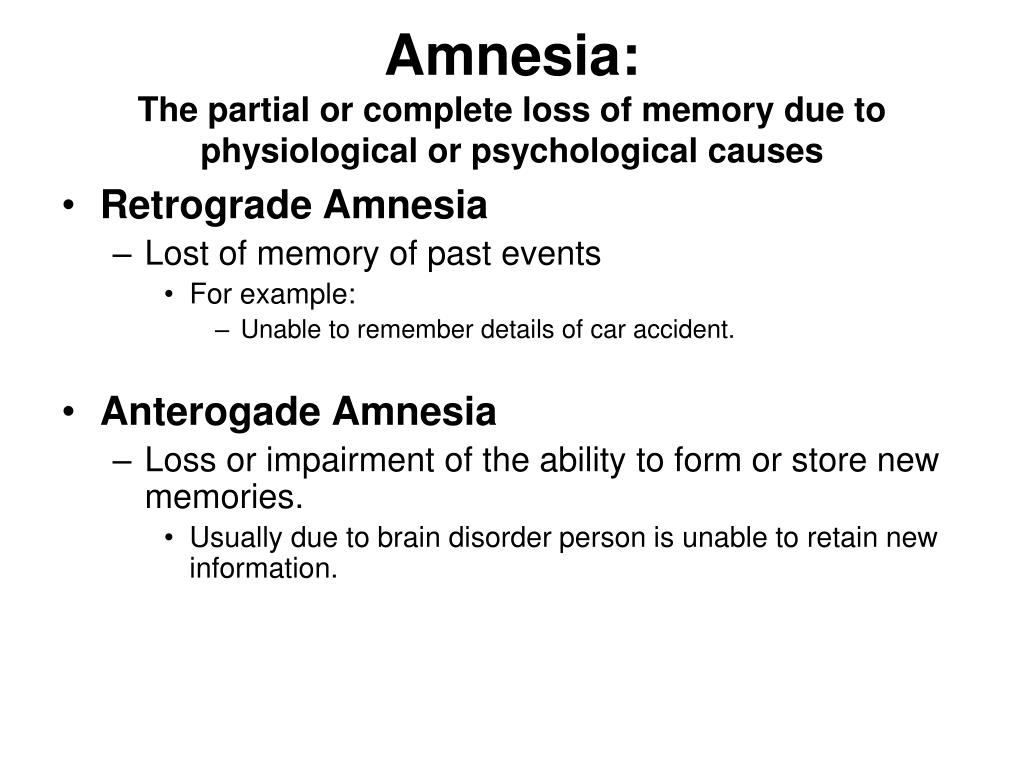

Amnesia can be caused by some medical conditions or injuries, including brain trauma, overdose, stroke, dementia, a brain infection, or post-traumatic stress disorder (PTSD). People with amnesia might experience poor short-term memory and have difficulty creating new memories. AmnesiaĪmnesia is a loss of memory and may be temporary or permanent. Sometimes removing the tumor can restore memory. You may also have difficulty recalling information from long-term memory. If the tumor is putting pressure on the prefrontal cortex or stopping the neural pathways in that area of the brain, you may be unable to remember information quickly. Brain TumorĪ brain tumor that affects the prefrontal cortex can also affect short-term memory. Approximately 30% of patients with a ruptured brain aneurysm regain their short-term memory, although it can take several weeks. This process can lead to short-term and potentially long-term memory loss. These aneurysms might not rupture, but if they do, they can cause a pool of blood around the brain that might cause clotting, causing mental deficiencies and killing off brain cells. Brain AneurysmĪ brain aneurysm is a weak or bulging spot on the walls of arteries in the brain. If you are concerned about your health, reach out to a medical provider as soon as possible. Short-term memory loss is often the first sign of certain medical conditions. However, many medical conditions that cause short-term memory loss are permanent and might lead to long-term memory loss. There are many possible causes of short-term memory loss, some of which are only temporary and can be remedied. When short-term memory loss affects your everyday life and activities, it may be rewarding to seek out help.

Hanging up the phone and forgetting who you talked to.Eating twice or not at all because you don't remember if you have eaten.Taking medication twice or not at all due to forgetting whether you took it.Forgetting what others have said soon after they said it.

Repetition in conversations because you don't remember what you said.Walking into a room and forgetting why you went there.However, if any of the following occur regularly, you may want to seek out help for a memory test and possible diagnosis: If you only have problems remembering things occasionally, you may not have cause for concern. Some individuals have occasional problems remembering something in the short term, but this can be debilitating for others. Short-term memory loss can present itself in various methods. If you are having problems remembering information for a few seconds after receiving it, your short-term working memory might not be functioning correctly. Working memory is constantly being discarded, relayed, and replaced. If information is deemed worthy of remembering and short-term memory works appropriately, the information may be relayed to short-term memory. Working memory may last about 15 to 20 seconds. Short-term and working memory are similar but different. Many people who experience short-term memory loss might have trouble remembering these types of information. Short-term memory can include remembering a phone number to dial, why you went into a room, or what you recently told someone in a conversation. However, it is also where short-term and working memory are stored temporarily. This part of the brain allows you to recall short-term and long-term memories. The central executive part of the prefrontal cortex is primarily responsible for short-term memory. If the brain labels the information necessary, it may then relay it to long-term memory. When remembering a piece of information, your senses take in information and relay it to your short-term memory. However, short-term memory must function appropriately for long-term memory to form. Short-term memory temporarily stores information, whereas long-term memory stores information for extended periods. Your memory can be divided into two main categories: short-term and long-term. Talk To A Therapist About Your Concerns What Is Short-Term Memory?


 0 kommentar(er)
0 kommentar(er)
